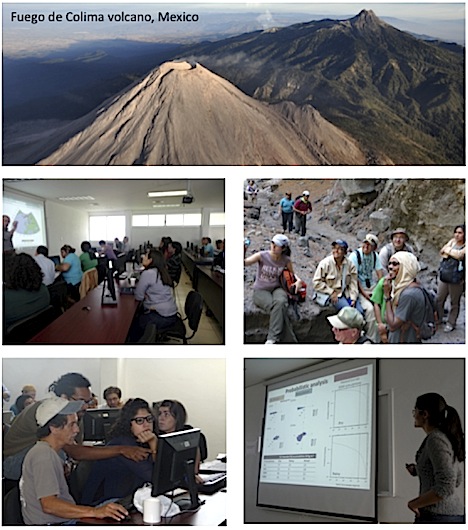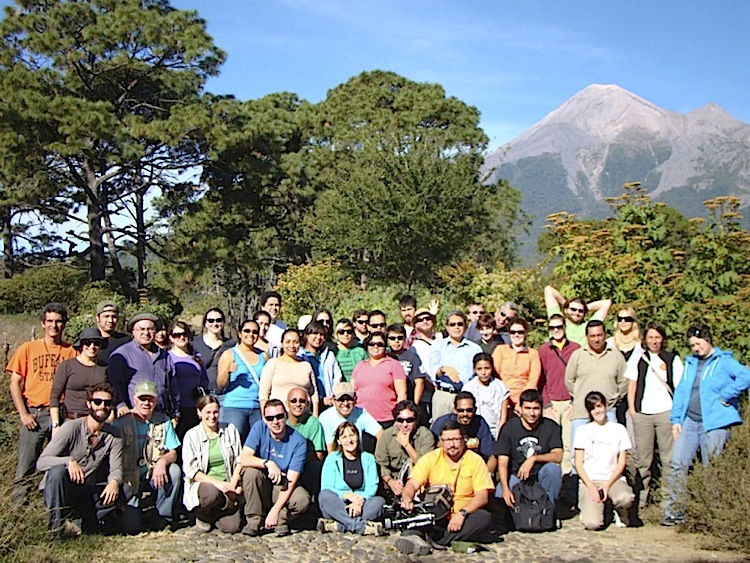PASI Workshop on Applying Computational Models to Real-Case Scenarios for Volcanic Hazard Assessment
A 12-day workshop on applying computational models to real-case scenarios for volcanic hazard assessment was held at the University of Colima, Mexico between 8-21 January 2013. The rationale behind the workshop was to provide instruction on the undertaking of quantitative volcanic hazard assessments and it was therefore designed to advance, and make more rigorous the process by which such assessments are achieved.

The workshop was funded through an award to Eliza Calder, José L. Palma, Michael Sheridan and Betina Martinez-Hackert, from the University at Buffalo, from the Pan-American Advanced Studies Institute (PASI) program. This program is supported jointly by the Department of Energy and the National Science Foundation. The PASI award provided funding for 48 international participants and instructors to attend from all regions of South, Central, and North America and the Caribbean. The workshop brought together 20 instructors who are international experts covering four major discipline groups (geology, geophysics, mathematics, and geography), and also included senior scientists from international government institutions responsible for volcanic hazard assessments.
The workshop focused on advancing the breadth and depth of understanding of the range of methodologies and procedures currently available for undertaking rigorous hazard assessments at volcanoes. The schedule combined 4 days of lecture-based instruction, 3 days of field-based instruction studying deposits around the flanks of Fuego de Colima Volcano and 4 days of hands-on computational modeling sessions held at the computer laboratory of the Faculty of Science at the University of Colima. Workshop modules stepped through the complete process, from collection of rudimentary information about the volcano’s past activity to providing a hazard assessment based on computational modeling using a suit of up-to-date simulation tools. The workshop took advantage of the rapidly-growing Vhub cyber-infrastructure platform, through which users can access simulation tools, tutorials, and support networks. The Vhub environment is well-suited to facilitate access to modeling for individuals in the geoscience community who may not be experienced or routine users of computational tools.
By the end of the 12-day workshop, it was clear to both the instructors and participants alike that the group had been brought together in quite a unique way through their shared experiences in both the lab and field environment as well as appreciation for the common interests in hazards in spite of working in diverse geographical regions. On reflecting on the workshop after returning home, we believe many, if not most, of the original project goals were accomplished. New collaborations were being fostered before the group parted and there was a notable collective sense of achievement from both participants and organizers alike.

Damien Wallack @ on
Very decent article, I greet :)
Reply Report abuse
case study report writing service @ on
Interesting article. Your workshop focused on advancing the breadth and depth of understanding of the range of methodologies. You can check out in case study report writing service to get more interesting article.
Reply Report abuse